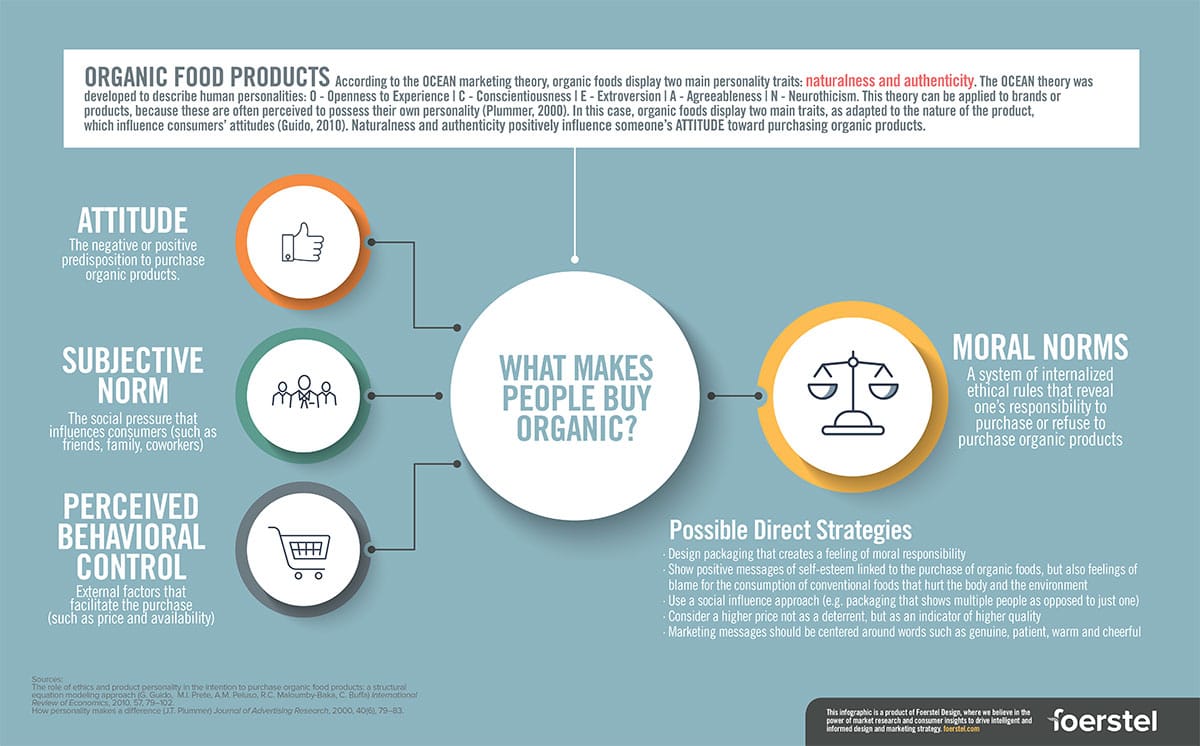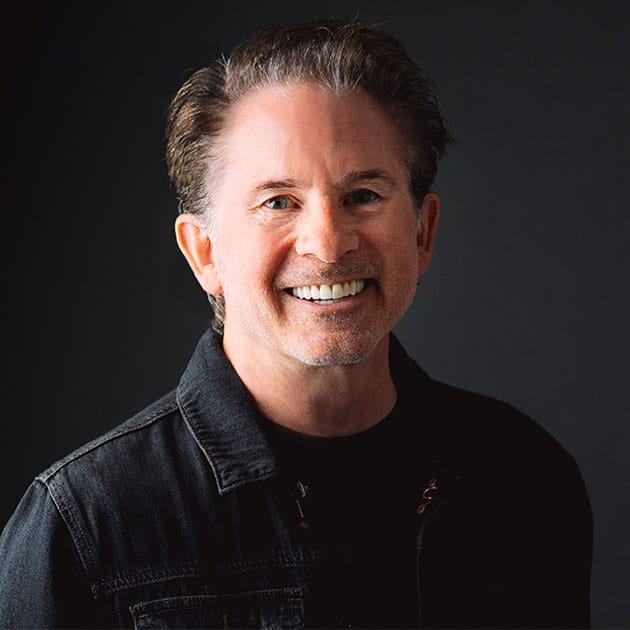ORGANIC FOOD PRODUCTS
According to the OCEAN marketing theory, organic foods display two main personality traits: naturalness and authenticity. The OCEAN theory was developed to describe human personalities: O – Openness to Experience | C – Conscientiousness | E – Extroversion | A – Agreeableness | N – Neurothicism. This theory can be applied to brands or products, because these are often perceived to possess their own personality (Plummer, 2000). In this case, organic foods display two main traits, as adapted to the nature of the product, which influence consumers’ attitudes (Guido, 2010). Naturalness and authenticity positively influence someone’s ATTITUDE toward purchasing organic products.
ATTITUDE
The negative or positive predisposition to purchase organic products.
SUBJECTIVE NORM
The social pressure that influences consumers (such as friends, family, coworkers)
PERCEIVED BEHAVIORAL CONTROL
External factors that facilitate the purchase (such as price and availability)
MORAL NORMS
A system of internalized ethical rules that reveal one’s responsibility to purchase or refuse to purchase organic products
Possible Direct Strategies
- Design packaging that creates a feeling of moral responsibility
- Show positive messages of self-esteem linked to the purchase of organic foods, but also feelings of
blame for the consumption of conventional foods that hurt the body and the environment - Use a social influence approach (e.g. packaging that shows multiple people as opposed to just one)
- Consider a higher price not as a deterrent, but as an indicator of higher quality
- Marketing messages should be centered around words such as genuine, patient, warm and cheerful
Sources: The role of ethics and product personality in the intention to purchase organic food products: a structural equation modeling approach (G. Guido, M.I. Prete, A.M. Peluso, R.C. Maloumby-Baka, C. Bu a) International Review of Economics, 2010, 57, 79–102. How personality makes a di erence (J.T. Plummer) Journal of Advertising Research, 2000, 40(6), 79–83.


